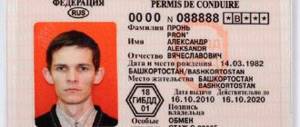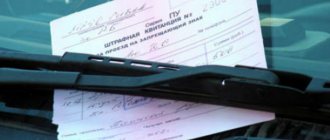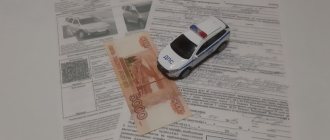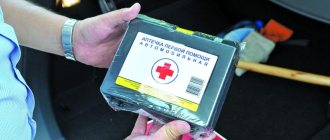Is it even possible to overdue a fine?
Yes, sure. And we will start with the deadlines when an administrative fine is not yet considered overdue. We need to understand this in order to further deal with threats of unpaid debt.
So, before you fall behind on your payment, there are 2 important periods:
- floating period for the resolution to enter into legal force - 10 days or more (why, we will describe below) - part 1 of article 30.3 of the Code of Administrative Offenses,
- the fixed deadline for paying the fine is 60 days, after which the delay begins (Part 1 of Article 32.2 and Article 31.1 of the Administrative Code).
These 2 time intervals follow each other - until the resolution comes into force, the countdown of the deadline for paying the fine will not begin.
As for the floating entry date, it depends on whether you appealed the fine or not:
- if the fine has not been appealed within the allotted 10 days, then it enters into legal force and the payment deadline of 60 days begins to count,
- If you filed a complaint against the fine, the entry into force is delayed until it comes into force, unless the decision is canceled as a result of the complaint.
Below, to make it easier to understand the terms of fines, we will consider the standard period: 10 + 60 = 70 days for paying an administrative sanction.
Now let's look separately at all the deadlines that in one way or another relate to fines, what the consequences of delaying them are, what to do in certain cases and other subtleties of administrative law!
When can you talk about late fines?
The fine is considered overdue if the motorist fails to pay within the period allowed by law. According to statistics, most drivers ignore the requirements of regulations, which leads to delays. And this despite the rather long period allotted for paying the fine.
After the ruling is issued, the motorist is given 10 days to appeal it. Payment must be made within two months.
If a motorist does not agree with the fine, then ignoring it is not the best way out of the situation. There are additional penalties for late payments. Therefore, it is better to challenge an unlawful punishment within the first 10 days after receiving the decision. To do this, a citizen can contact the traffic police or the court.
When the deadline for paying the fine expires, the case is transferred to the bailiffs. They are engaged in debt collection and bringing the violator to additional penalties.
Discount period for fines – 20 days
And this is a “special” period, different from others in this article and regarding fines by the beginning of its effect.
Unlike other fine periods, the discount period begins not from the date of entry into force of the administrative decision, but from the date of its issuance. And the subtlety here is that for “chain letters” from auto-fixation cameras, the discount period may already have passed when you even see the letter and learn about the fine.
Fortunately, legislators have provided for this moment... However, after almost 5 years of existence of this law. The Constitutional Court ruled that if this deadline is missed for objective reasons, then the discount period is extended, but only at the request of the person against whom the decision was made. Corresponding changes have also been prepared in the Administrative Code.
The opportunity itself is regulated by Article 32.2, Part 1.3 of the Code, and the discount does not apply to the following traffic violations:
- repeated driving in a vehicle not registered with the traffic police,
- all violations of the Rules related to intoxication, including refusal of a medical examination,
- repeated speeding,
- repeating a red traffic light,
- re-entering the oncoming lane,
- driving against the direction of traffic on a one-way road,
- traffic violations that cause harm to the health of other road users.
Fine from bailiffs: from the beginning of the delay to 2 years
So, after the standard 70 days given for the entry into force of the resolution and payment of the fine, the latter can be transferred for compulsory execution . This is what is called the transfer of the fine to the FSSP, which, accordingly, is engaged in forcibly “knocking out” the debt from you.
And the bailiffs can carry out the following actions to force you to pay the fine:
- withdraw the amount of the overdue fine from your bank cards,
- come to your house to collect property to pay off the debt to the traffic police,
- ban registration of your car,
- seize your property, including the same car.
When the traffic police receives information about an overdue fine to the bailiff service, they are first of all obliged to send a notice of voluntary repayment of the debt. If this requirement is not met, the bailiff in whose hands the case is located initiates enforcement proceedings, and within the framework of this proceeding, imposes the penalties listed above.
It is also important to remember that when initiating enforcement proceedings, you will be charged an additional enforcement fee - an additional payment for this proceeding. As of 2021, it is 1,000 rubles (regarding overdue traffic police fines).
Let's take a closer look at each of these measures to influence debtors!
Collection of overdue payments from a bank card
The bailiffs do this first, since it is easiest to find the “client’s” accounts and collect the amount of the overdue fine on them. This matter is automated between the FSSP and banks and occurs almost automatically.
First, the bailiff makes a request to almost all banks about the availability of accounts for such and such a debtor. If there are any, a writ of execution is sent to the bank, and if there are funds in the accounts, the bank is obliged to transfer them to the FSSP along with the enforcement fee.
Prohibition of car registration
It is possible even if the fine is 500 rubles overdue (the minimum amount of sanctions for traffic violations) and even for several days. The ban (also called “restriction of registries”) is that you will not be able to carry out any registration procedures at the traffic police MREO.
And it’s not just about buying a car and registering it. Difficulties will arise when trying to:
- deregister a car for any reason,
- stop registering when selling a car,
- Recover a lost vehicle registration certificate.
It is important not to bring an overdue traffic fine to the point of imposing such a ban also because it often takes a long time to be lifted even after the debt is paid off. If you think that as soon as you decide to sell or buy a car, you will simply pay off the debt and solve the problem, then this is not so. A month or even more may pass between the debt being paid off and the restrictions being lifted.
Arrest
This is the most unpleasant and risky thing that comes with an overdue fine. This same reason answers the question of whether it is possible to drive with an overdue fine.
In case of long-term debts, bailiffs are very fond of seizing, first of all, the car (as a rule, at this point the registration ban has been in place for a long time). This means that the seized property is subject to surrender and storage at a special site with the bailiffs until execution of an overdue fine (article of the Federal Law on Enforcement Proceedings).
Arrest cannot be applied if the amount of debt for one proceeding (that is, for one of the overdue traffic police fines) is less than 3,000 rubles.
The most sinister aspect of the car seizure is the joint raid by the traffic police and bailiffs. When an inspector stops a car (the bailiff himself cannot stop cars on the road) that has been seized, a representative of the FSSP can easily seize it right on the road.
Statute of limitations for debts owed by bailiffs
In the subtitle we mentioned that an overdue fine is kept by the bailiffs for 2 years. This is also regulated by legislation relevant for 2021.
The fact is that if the bailiffs were unable to collect the fine within 2 years, then it is illegal to continue trying, and the fine “burns out.” The countdown of this period begins from the date of entry into force and is regulated by Article 31.9 of the Code of Administrative Offences.
1. A resolution on the imposition of an administrative penalty is not subject to execution if this resolution has not been enforced within 2 years from the date of its entry into legal force.
But this is only relevant if you were not hiding from enforcement. This means that the bailiffs did not prove that you deliberately hid money and property, hid from appearing before the bailiff, and the like.
Where to pay if the fine is from the bailiffs?
There are 2 options to pay for an expired traffic police sanction if it is already being executed by the bailiffs:
- at the traffic police,
- in the FSSP.
The subtlety of the direction of payment is that if you pay directly to the bailiffs, how soon will the State Traffic Inspectorate update information about this? And if you pay to the traffic police, how soon will the bailiffs stop bothering you? And what if you have already paid, but the last one charged the fine to your bank card?
We answered all these questions in detail in a separate article about this.
What fines are considered overdue?
Any administrative fine has a deadline for voluntary execution:
| If a citizen does not appeal the traffic police decision | 70 days from the date of drawing up the resolution |
| When appealing a decision | 60 days from the date of the decision of the court to which the complaint was filed. The estimated time to appeal is 2-3 months. That is, the time for consideration of the complaint (in a regional court) plus 60 days . |
Upon expiration of the voluntary compliance period, the fine is considered overdue. In this case, no excuses are taken into account, for example, being busy at work, traveling on a business trip, etc.
The delay occurs automatically, without any notifications or additional actions.
Important note!
- This article provides basic information, but each case is different.
- In 92% of all situations there are important nuances that can affect the outcome of the entire case.
- An experienced lawyer will study all the materials of the case and indicate in which direction to move.
Therefore, our website employs on-duty legal consultants who delve into each case and are aimed at solving it.
Ask a Question
or consult toll-free (Moscow), (St. Petersburg), 8 (all of Russia).
Double fine or arrest for delay
Another reason why it is better not to drive with an expired traffic police fine is part 1 of article 20.25 of the Code of Administrative Offenses. It provides for the imposition of another penalty for a simple violation - failure to pay the assigned fine on time - that is, for late payment.
Only judges can prosecute people under articles that provide for arrest; traffic police officers are not authorized to do this. And the procedure for punishment under this article of the Code looks quite standard:
- a traffic police inspector stops you on the road,
- searches through the database of available traffic police fines and finds expired ones,
- takes you to the department to await trial (the wait most often lasts no more than a day) or there have been particularly “limitless” cases where, right on the road, the inspector contacts the judge via Skype, and he imposes a punishment - most often an arrest for 5-10 days.
The scheme where you are taken to court directly from the road is illegal!
The fact is that all procedures that provide for the restriction of human rights are prescribed by law and regulated in Orders (more precisely, regulations). If you are taken away to await trial, this is called detention. It is possible only in exceptional cases for timely consideration of the case. An inspector can only consider a case that requires your presence in court to be timely, and this is true from the point of view of the law. But this is not a basis for detention, because you are not going to avoid appearing in court - just tell the inspector exactly that.
And employees can also call it delivery. And this is also incorrect, because delivery to the Code of Administrative Offenses is described as transfer to the department for the purpose of drawing up a protocol if its drawing up is impossible on the spot. And it may be impossible for objective reasons (for example, you do not have a passport), and not because, for example, the inspector himself does not have protocol forms.
According to the law, the officer can only issue a report against you for an overdue traffic fine and then send this report to the court. And you will be summoned to court.
If you have been subjected to a legal penalty for detecting a late fine, then it is best not to appear in court. In this case, arrest cannot be used without the presence of the person against whom the case is being conducted. As a last resort, if you fail to appear, and if the judge stubbornly wants to arrest you for an overdue debt, he can arrange for you to be brought to the courtroom.
Statute of limitations under Article 20.25
It is important to understand that the possibility of imposing a double fine or arrest for overdue payments has its own statute of limitations.
For late payment, a fine under Article 20.25 can only be imposed after the payment period has expired - 70 days and after that for 3 months (Article 4.5 of the Administrative Code). The main thing here is not to confuse days with months.
For example, you were fined on March 10, 2021. You did not appeal it, and it came into force on March 21 (the period in administrative law begins the next day). Now you have 60 days to pay - until May 22. And just between May 23 and August 23, 2021, you may be charged with an overdue traffic fine. That is, if you are overdue for a year, then they will no longer be able to arrest you and impose a double fine on you.
So, for convenience and better understanding, let us now present all these periods of delay in a traffic police fine in the form of a visual info-graphic:
Should I be afraid of punishment for non-payment?
A fine is a type of administrative punishment. In this regard, refusal to pay is considered evasion of punishment . Article 20.25 of the Code of Administrative Offenses of the Russian Federation clearly regulates the liability that is provided for such an action.
Important! In case of refusal to pay the fine, the violator will be additionally punished and fined double.
For example, if the fine is 500 rubles, then non-payment will entail 1000 rubles. However, not all fines issued by traffic police officers are small. It all depends on the type of violation and the circumstances.
For example, for driving while drunk (if caught for the first time), a fine of 30,000 rubles will be imposed. Accordingly, you will have to pay about 60,000 rubles for an unpaid fine. In this case, you will need to pay both the first fine and the second (which was imposed for failure to pay the first).
Also, according to Article 20.25 of the Code of Administrative Offences, it is stated that a driver who violates the rules may receive penalties in the form of:
- arrest for 15 days;
- involvement in compulsory work for up to 50 hours.
Moreover, the decision on an overdue fine, along with other documents, can be transferred to the bailiffs at the place of residence of the culprit for enforcement. In this situation, it will be necessary to pay the enforcement fee. In addition, bailiffs have broad powers and have the right to seize the property of the offender, as well as sell it at auction in order to collect the debt.
Repetition period
Another threat to driving with expired traffic fines is that the Code of Administrative Offenses differentiates punishments for the same traffic violations if they:
- committed for the first time,
- committed again.
Under the circumstances in the last paragraph, the penalties are more severe. For example, for driving into the oncoming lane (Article 12.15 of the Administrative Code), the punishment is provided in the form of a fine of 5,000 rubles or deprivation of rights for 4-6 months. And if you violate this rule again, you may be imprisoned for a year.
What is repeat violation? This is if you have already committed the same thing, and the date of full execution of the punishment for it has passed less than 1 year. Full execution of the punishment is precisely the payment of the fine (or the end of the deprivation of rights).
Again, an example: you exceeded the speed limit by 70 km/h on January 1, 2021, for which you received a fine of 2,500 rubles under Part 4 of Article 12.9 of the Administrative Code. You paid for it on January 30, 2021. Consequently, the repetition period for this violation will last until January 30 of the next year - if you are caught on camera during this period, then a fine will be issued under Part 7 of the same article, which provides for a fine of 5,000 rubles, and if the inspector stops you in excess on the road, you will be disqualified from driving for a year.
When does the fine expire?
If within 2 years from the day on which the penalty order came into effect the penalty is not paid, then the penalty is considered fulfilled. That is, the citizen is not subject to an administrative sanction.
But such an outcome is possible when the offender did not know that a resolution had been drawn up against him. For example, the resolution was sent to him by mail, with the address mixed up. And no one bothered him all this time.
Otherwise, the citizen is considered to have evaded punishment. And this cancels the statute of limitations. That is, the fine will be listed as valid.
Practice shows that playing the game “Should I pay an overdue traffic fine” is risky. It could end up being much more expensive.











